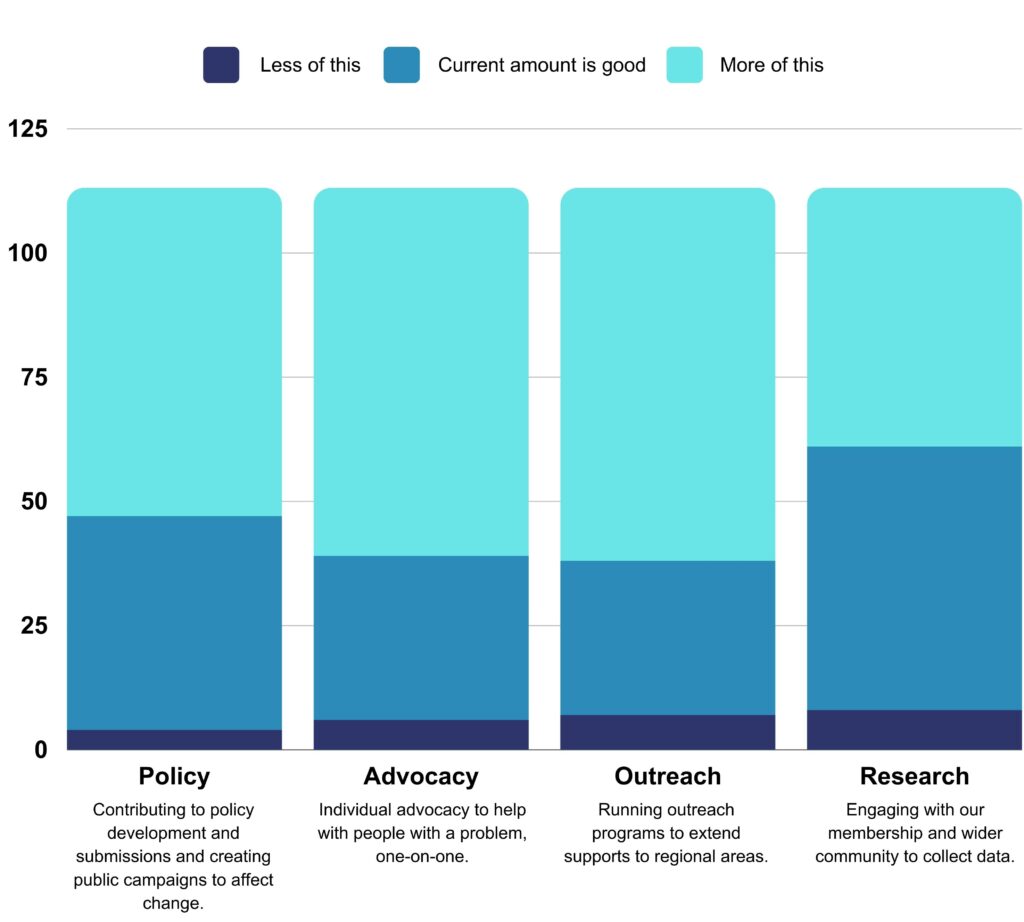On 28 July 2021, PWDA launched a survey of our membership. Respondents were asked what they would like PWDA to prioritise over the next three years. The survey ran until 23 August 2021 and received 120 responses. Thank you so much to everyone who responded. The results from this survey will guide PWDA as we form our future direction strategy.
Based on the results, top priorities for our members included:
- Developing policy and advocating for systemic change.
- Standing up for people with disability.
- Keeping the voices of people with disability at the centre of the implementation of the National Disability Strategy.
- Economic security, income support and barriers to open employment.
When asked their top economic priority, respondents ranked the NDIS above social social security, employment and 65+ support. Respondents ranked housing and health as their top wellbeing priorities.
Members were also consulted on what PWDA should focus on in relation to the Disability Royal Commission (DRC). Poverty and income support was the most popular option. Most respondents wanted PWDA to lobby governments for change in response to the DRC
Finally, members were asked to give feedback on PWDA’s current work. Most respondents wanted to see more policy, advocacy and outreach work.
For more detail on these results please read the graphs and comments below. These have been selected to highlight key issues raised by our membership.
What PWDA members want
‘I’d like to see PWDA advocacy available in all states and territories.’
‘Advice on accessible fitness programs.’
‘Better access to mainstream health supports in conjunction with NDIS supports to make the NDIS more sustainable.’
‘[Explanation of] changes in legislation or policies which impact people with a disability in accessible formats.’
‘As much focus and attention put on mental health issues as there is on physical disabilities.’
‘More peer support and inclusive employment opportunities.’
Questions and responses
What kind of work would you like PWDA to focus on for the next 3 years? Please choose your top 3 and rate in order of importance, with one being the most important and 3 being the least important.
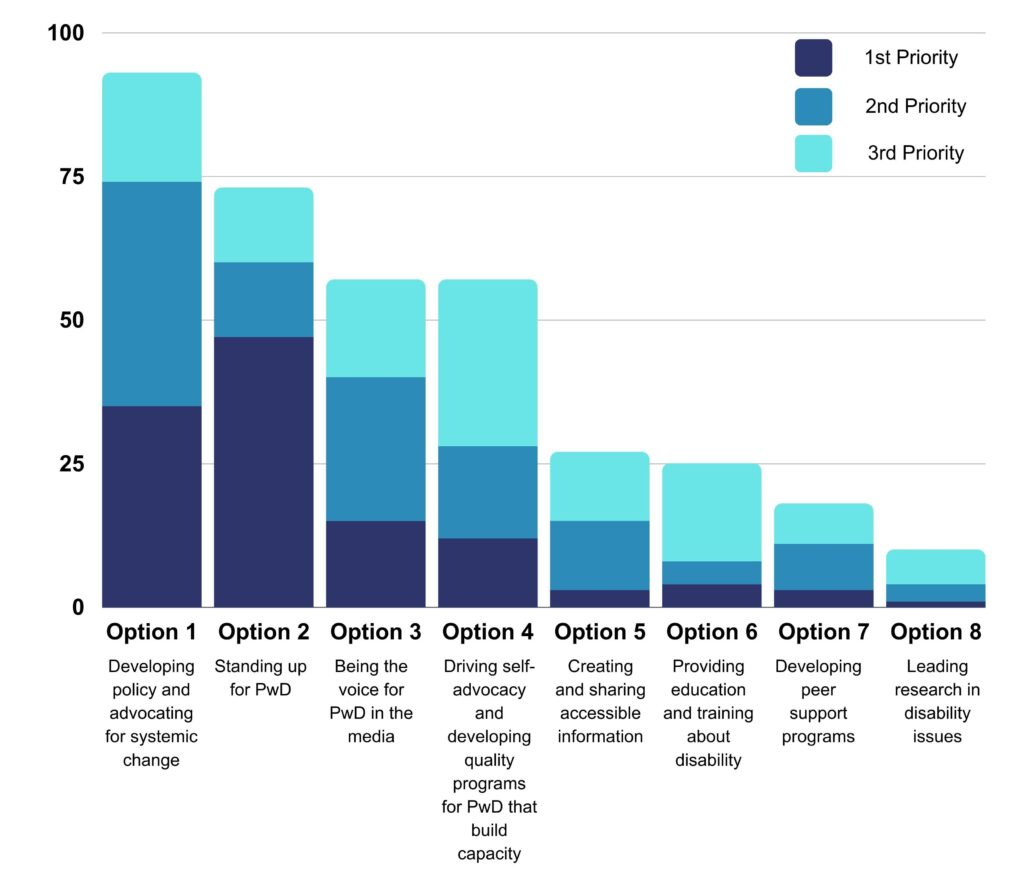
What are the main issues you would like PWDA to focus on for the next 3 years? Please choose your top 5 and rate in order of importance, with 1 being the most important and 5 being the least important.
The graph below highlights the top 5 most selected options.
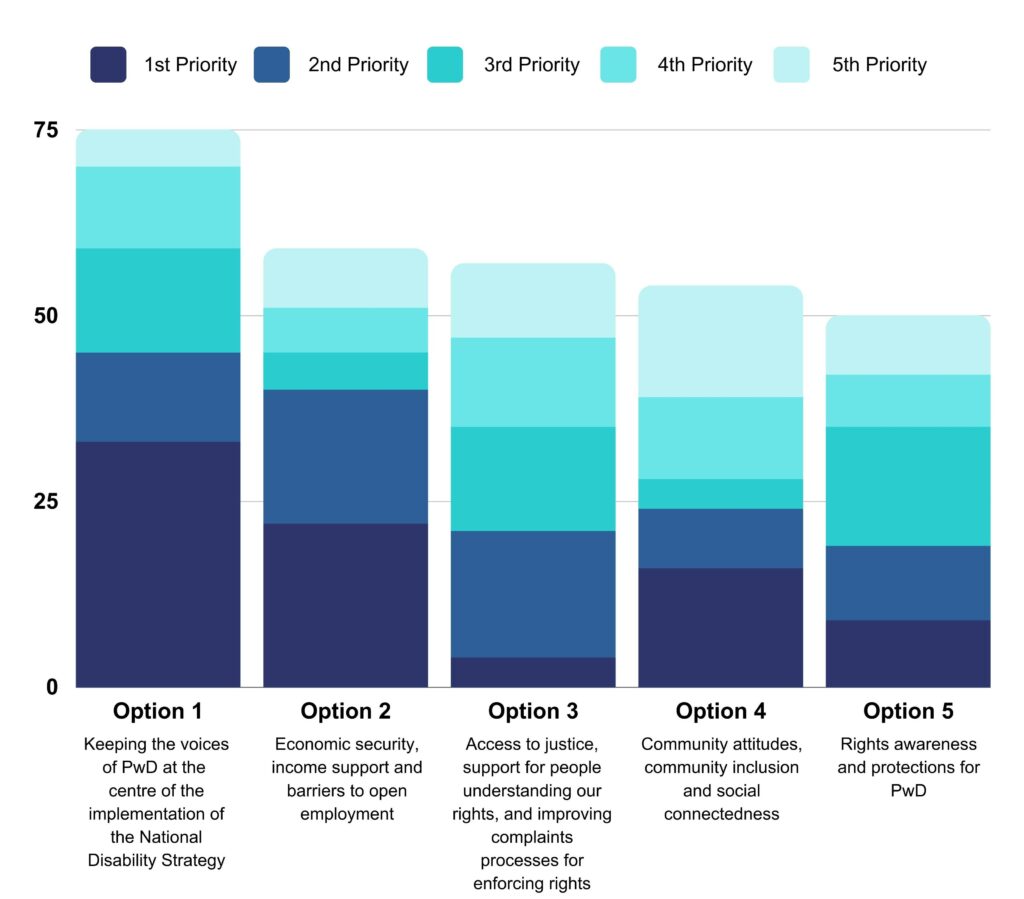
How would you like PWDA to prioritise these economic issues over the next three years? Please rate in order of importance, with 1 being the most important and 4 being the least important.
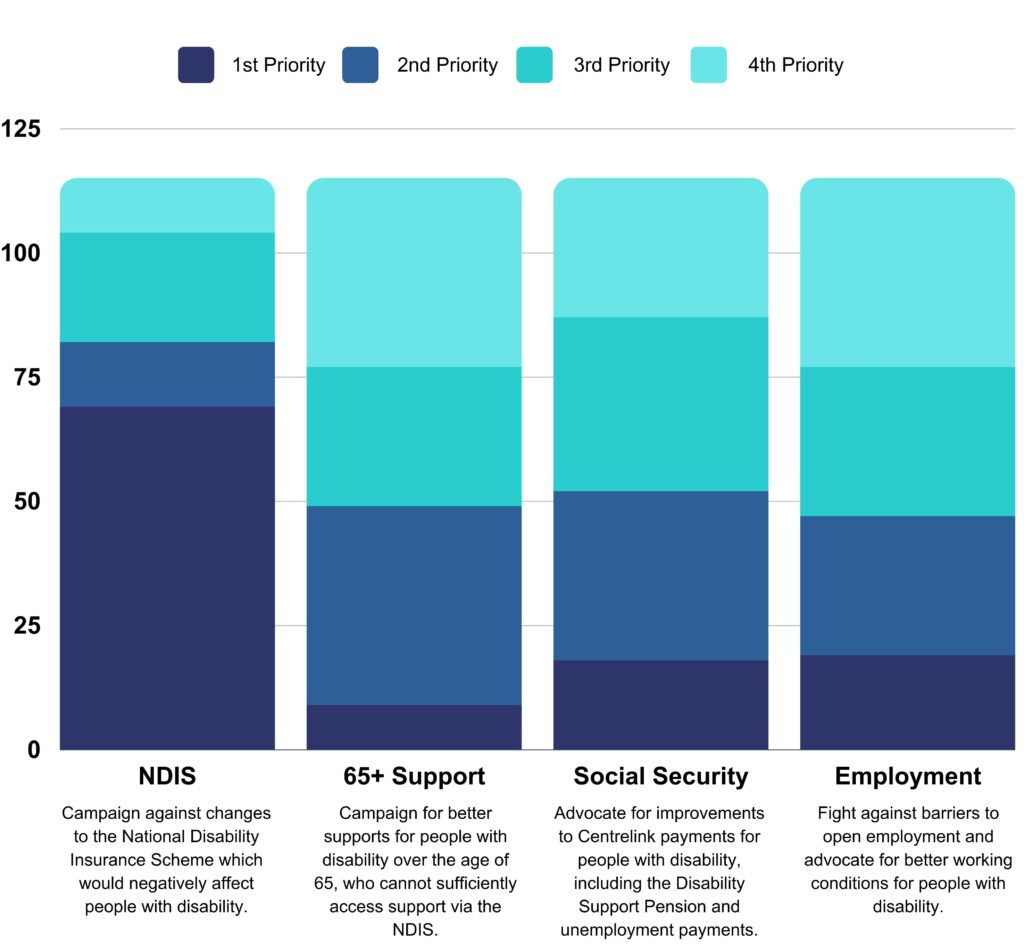
How would you like PWDA to prioritise these health and wellbeing issues over the next three years? Please rate in order of importance, with 1 being the most important and 5 being the least important.
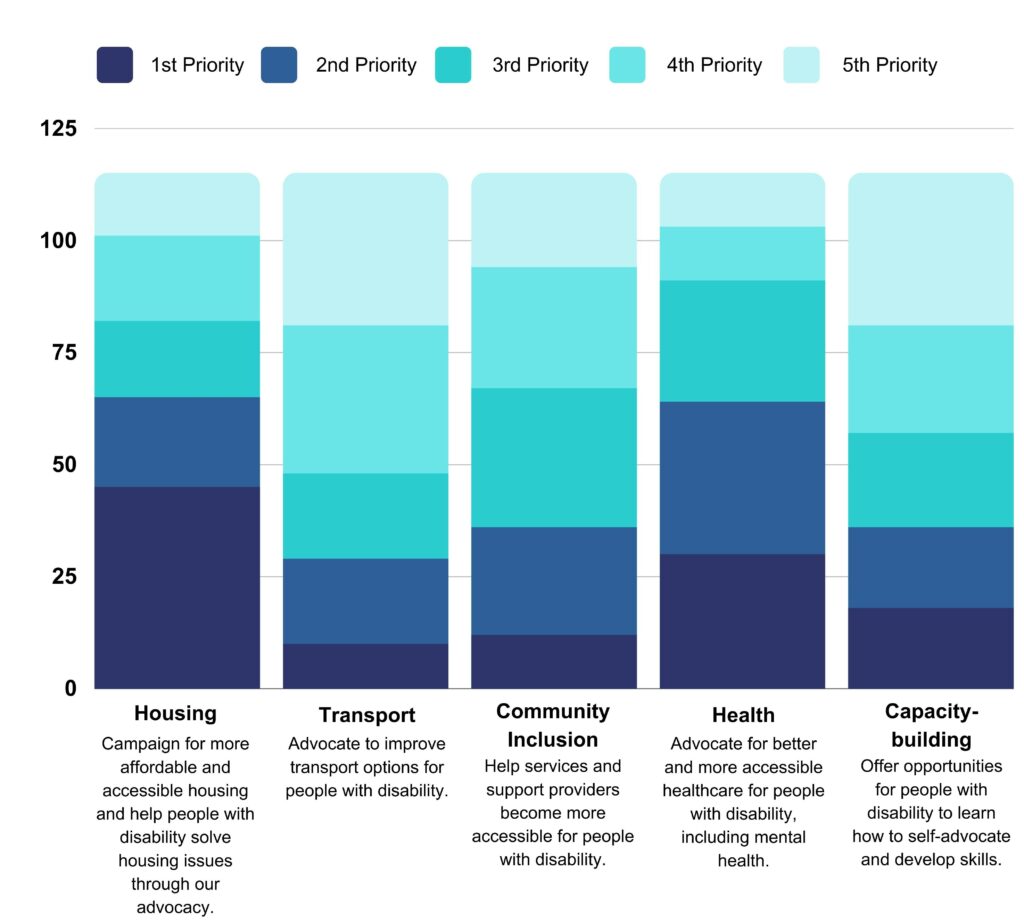
The Disability Royal Commission is investigating a broad range of issues. Which issues would you like PWDA to focus on? Please choose five.
The options shown in the graph below were ranked as follows:
- Option 1: Poverty and income support
- Option 2: Guardianship and making our own decisions about our lives
- Option 3: Where and how we live in the community
- Option 4: Access to justice
- Option 5: Helping all of us know our rights
- Option 6: Family and domestic violence
- Option 7: How people think and talk about us
- Option 8: Forced medical treatment and sterilisation
- Option 9: Segregated employment
- Option 10: Financial Abuse
- Option 11: Violence in the workplace
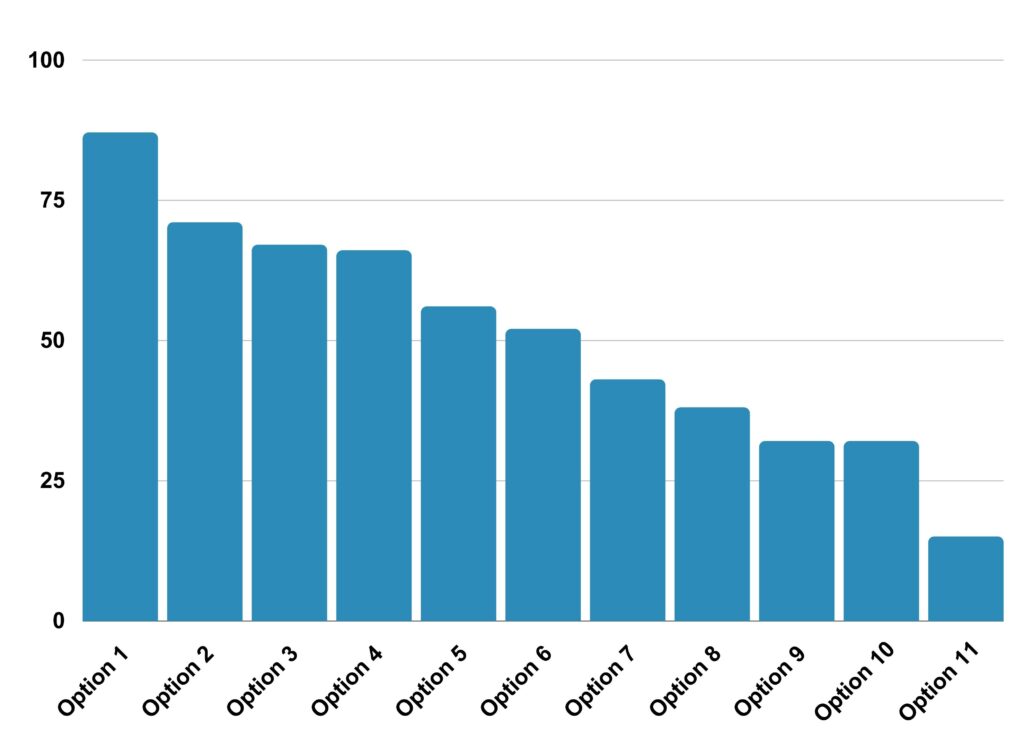
PWDA responds to the Disability Royal Commission in a range of ways. Please indicate which ways are most important to you. Tick as many as you like.
The options shown in the graph below were ranked as follows.
- Option 1: Lobby governments for change.
- Option 2: Be in the media about issues to do with the DRC.
- Option 3: Have advocates available to provide one-on-one support.
- Option 4: Reach out to people with disability who may not know about the DRC.
- Option 5: Conduct research on issues that come up at the DRC.
- Option 6: Provide information and resources about how to tell your story to the Disability Royal Commission.
- Option 7: Provide information about where to get support and help to tell your story.
- Option 8: Attend and provide evidence at hearings.
- Option 9: Make information available in Easy Read and Auslan formats.
- Option 10: Provide information about the hearings, including live-tweeting hearings.
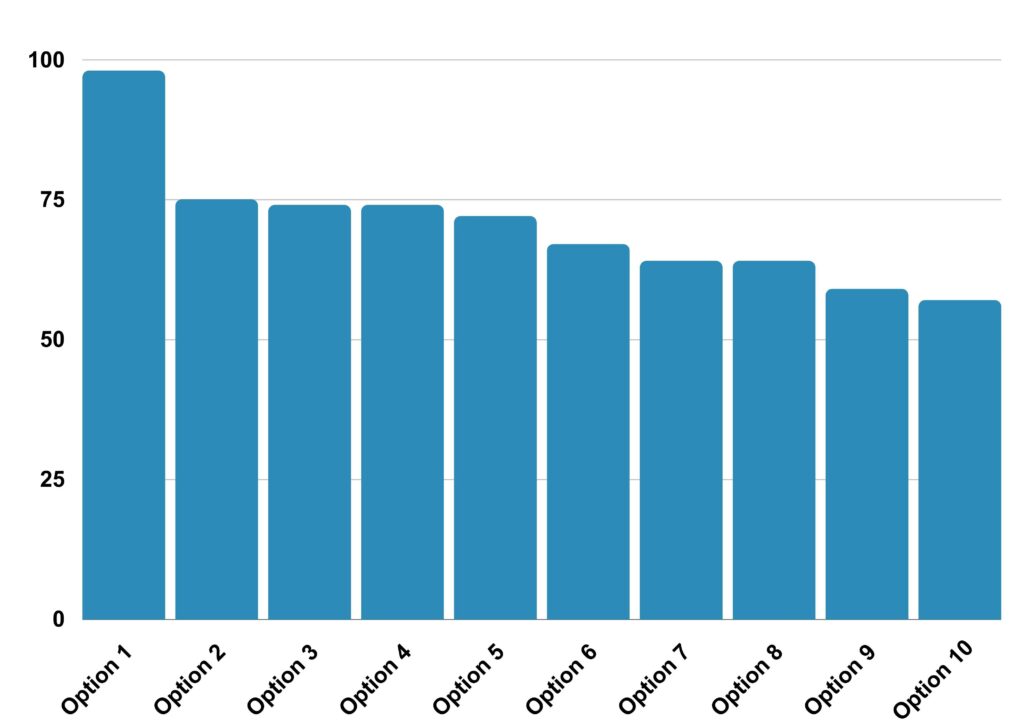
Members identified advocacy and outreach as two priority areas for PWDA in answer to the question: Do you think anything should change about the type of work PWDA does?
